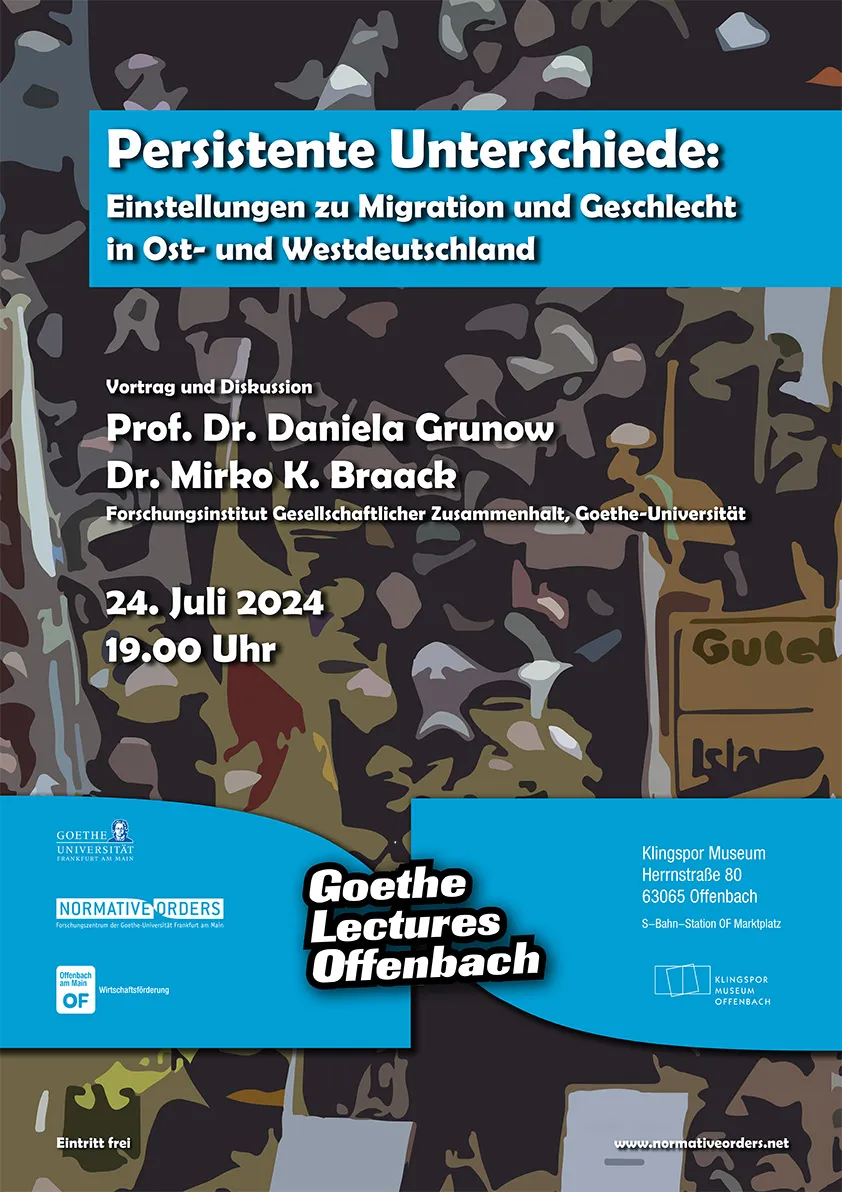Persistent differences: attitudes towards migration and gender in East and West Germany
Prof. Dr. Daniela Grunow (Professor of Sociology with a focus on “Quantitative Analyses of Social Change”, Research Institute for Social Cohesion, Normative Orders) and Dr. Mirko K. Braack (Post-Doc at the Frankfurt branch of the Research Institute for Social Cohesion, Normative Orders)
More than 30 years after German reunification, there are still major differences between East and West Germany. This is particularly noticeable in two areas: the division of labor within the family and the underlying gender ideals, as well as in relation to attitudes towards migration. On the one hand, people in eastern Germany are significantly more egalitarian than people in western Germany, while on the other hand, migration generates greater rejection in eastern Germany. This finding not only challenges society, it also contradicts the assumptions of modernization theory. How can this difference be explained? Based on various theoretical approaches and empirical findings, the lecture approaches this seemingly paradoxical situation and discusses its social preconditions and consequences.

Daniela Grunow is Professor of Sociology with a focus on “Quantitative Analyses of Social Change” at the Department of Social Sciences at Goethe University. Her research and teaching focus on the interactions of the labor market, domestic work and gender relations in different welfare states as well as on aspects of social integration and cohesion. Daniela Grunow is spokesperson and PI of the research group FOR 5173: Reconfiguration and Internalization of Social Structure (RISS). She is also co-spokesperson and PI of the Frankfurt sub-institute of the Research Institute for Social Cohesion. In addition, Daniela Grunow has led a number of German and international research projects, including the ERC project “APPARENT -Transition to parenthood: International and national studies of norms and gender division of work at the life course transition to parenthood”, as well as various ongoing and completed DFG and BMBF-funded projects.

Mirko K. Braack has been a post-doc at the Frankfurt branch of the Research Institute for Social Cohesion since 2021. He studied political science and sociology in his Bachelor’s degree and sociology in his Master’s degree at the University of Rostock. In 2022, Mirko Braack completed his dissertation project in sociology at the University of Rostock with his thesis “Exogamy and Participation in the Context of Migration. Quantitative studies on exogamous and same-sex partnerships in Germany and Europe’. Mirko Braack is interested in gender ideologies, family sociology and the relationship between migrants and non-migrants, as well as social boundaries and opportunities for participation. His previous research has been published in European Sociological Review and Genus, among others.
Admission is free.



